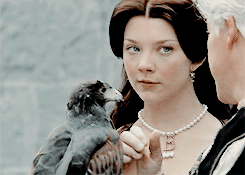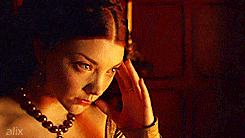Rating: 2.7 Usually what separates a revolution from a terrorist group is that they actually help people.
The poverty stricken Reds are commoners, living under the rule of the Silvers, elite warriors with god-like powers. To Mare Barrow, a 17-year-old Red girl from The Stilts, it looks like nothing will ever change. Mare finds herself working in the Silver Palace, at the centre of
those she hates the most. She quickly discovers that, despite her red blood, she possesses a deadly power of her own. One that threatens to destroy Silver control. But power is a dangerous game. And in this world divided by blood, who will win?
ARC Copy Review
“Mare Barrow”
The building of this world is actually very good. The world of Silvers, the elites, the family structures and the individual powers of each of the younger generation of nobles makes sense. Everything about it makes and works like an actual living, breathing world, and that is very hard to accomplish. Aveyard is a good writer, her prose is good, her world building, imagery and descriptions are good. She’s got some solid talent.
However...
The main character isn’t a character. Devoid of personality except for bitterness and anger, she’s merely a conduit, a spyglass into this plot. Not that a main character cannot be a bitter and angry character and still maintain personality. Not to be cliche and revert back to the paragon of the revolutionary-dystopia genre, Katniss is very angry, and very bitter but she does have a personality of her own. She has likes and dislikes, she forms relationships in a unique about believable way. Mare Barrow (high on the list of ridiculous YA names) has a character but as soon as she’s introduced into the Silver’s world ‘Mare’ takes a back seat to simply relaying the plots and sometimes having an emotion that drives the plot along.
This is also a failing of first person writing. It’s harder to see the personality when you’re entrenched in the mind of a person constantly; like trying to see the forest through the trees it’s difficult. It’s really boiling down to a cheap marketing trick, it seems. Like some theory that readers will love and identify more with a character that’s written in first person (seeing it all through the character’s eyes and hearing their thoughts throughout) and third person limited (a narrator describing the actions and thoughts of a character, and therefore limited to only their experiences).
It’s also the failing of the genre. The beauty of the Hunger Games is that while things were happening in the background for the revolution, Katniss was having a lot of agency and a very real struggle in the Games to stay alive. It showed things about her, her kindness, her cleverness, her ruthlessness, her self sacrificing nature.
It seems like in these dystopian books, the main character is singled out, brought into the lap of luxury and dumped for most of the book while the revolution works in the shadows. The main character meanders, doing nothing but passing incompetent information, and then suddenly the revolution burst forth and--oops! Wait for the next book.
That’s exactly what happens here, and the fact that Mare does little to nothing to help the revolution, and little to nothing to entrench herself in the Silvers to get more information makes for a very dull 2/3s of a read. She makes some friends and a lot of enemies, including the cliched Pretty girl who has her clique and is out to destroy the new girls because…
Actually there’s no reason why the ‘evil’ girl hates Mare. Mare is engaged to the second prince, while the ‘evil’ girl is engaged to the crown prince. So other than sociopathy I’m not really sure what her problem is, as no one knows that Mare has Red blood--only that she was raised among them.
And Mare is no threat. Mare does nothing but have a smart mouth and a special power, lightning, which, compared to the other powers, is odd, out of place and sort of useless. But then again, so is Mare.
She doesn’t lead the plot, so much as she is along for the ride. She’s falling in love with the crown prince, but also likes her fiancee in a love triangle-esque situation that’s happily dropped by the end of the novel. But her loyalties are very odd, and that ties in with another problem of the novel.
She makes her friends and allies, like any novel, but elevates and drops them for stupid reasons. I cannot for the life of me remember how or why she decides halfway through the book that she hates the crown prince with a seething passion despite being attracted to him. I think it has something to do with seeing him fight, and plan in the war room about this on going war between his and another kingdom using Red foot soldiers as fodder. IT’s wrong and horrible (duh, dystopian) but it’s not out of character. He’s been raised to be a prince, and a soldier to win this on going war. He’s been raised for seventeen something years to believe that Reds are expendable fodder for war.
Basically she’s mad beyond time and reason that the Prince doesn’t revoke the way he’s been raised and his family and friends, and upheave his entire worldview because she told him too, and because they want to have sex.
She’s not the brightest bulb in the pack. And she never does anything to try to convince him. The second prince, her fiancee, believes in the Scarlet Guard (the book’s revolutionary force), oddly enough. And Mare is angry that his brother doesn’t agree, never once bringing up that fact that two princes have very different roles, and that one is being raised for the throne, while the other is left to his own devices. Mare is basically one of those activists who says ‘it’s not my job to educate you’, and while that’s a very common attitude among teens it makes for a pretty annoying protagonist. Mare cannot understand how much the crown prince hates the Scarlet guard after seeing people he grew up with shot in the head and bleeding at his feet, and I cannot understand how I kept reading after that.
That brings me to the revolution, The Scarlet Guard. They have cause, of course. The Reds are treated like cattle in a never ending draft. If you cannot become apprenticed as a productive member of society then you will be sent off to war and killed. But the guard never actually...do anything to help the people.
Oh they bomb Silver cities, they killed Silvers, but they never actually do anything. They mentioned that they ferry people away from the draft, but they charge an impossible amount for such a thing. You would think that if you were out to help the people you would want to hide away as many of the oppressed in a safe place and thus add to your numbers. But no, they charge an amount that no Red can hope to meet.
Why?
Mare actually, in a shining moment of complexity, asks the leader of the revolution about her blood thirst and how she goes about killing people. They are planning an assassination during a Silver ball, and Mare knows some of the targets. Moreover she knows that they are mothers and fathers. Mare asks the leader about that and the leader replies that it’s for “the glory of the revolution.”
So they don’t help people, and they kill for glory and attention. That sounds like a terrorist group.
And it’s sad, because the Reds need the help, but the way the revolution is going about is wasting time and painting a huge target on their back. In fact their actions are increasing the suffering of the Reds, dramatically. Now, if it had shown in the book more of the good that the revolutionaries were doing, that would be a complex causality of freedom fighting. But now it just seems like foolish people, making foolish choices and makes everything a whole lot worse.
It’s a lot of great world building but it’s saddled down with cliches and shot for shot plot turns that are saturating this genre. I understand it’s getting a lot of praise, but, to me, it seems like a fresh coat of paint on an old, used car.




No comments:
Post a Comment